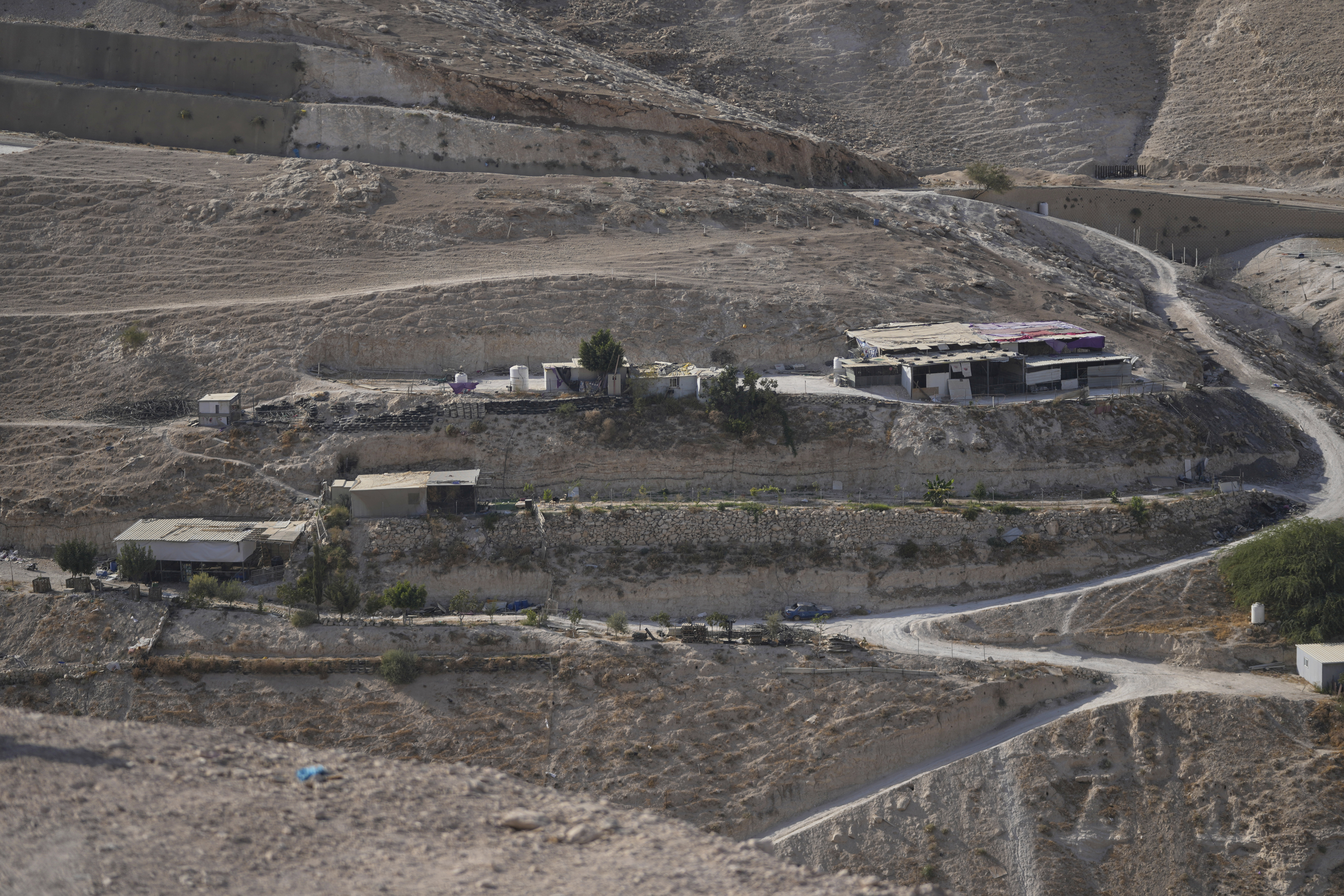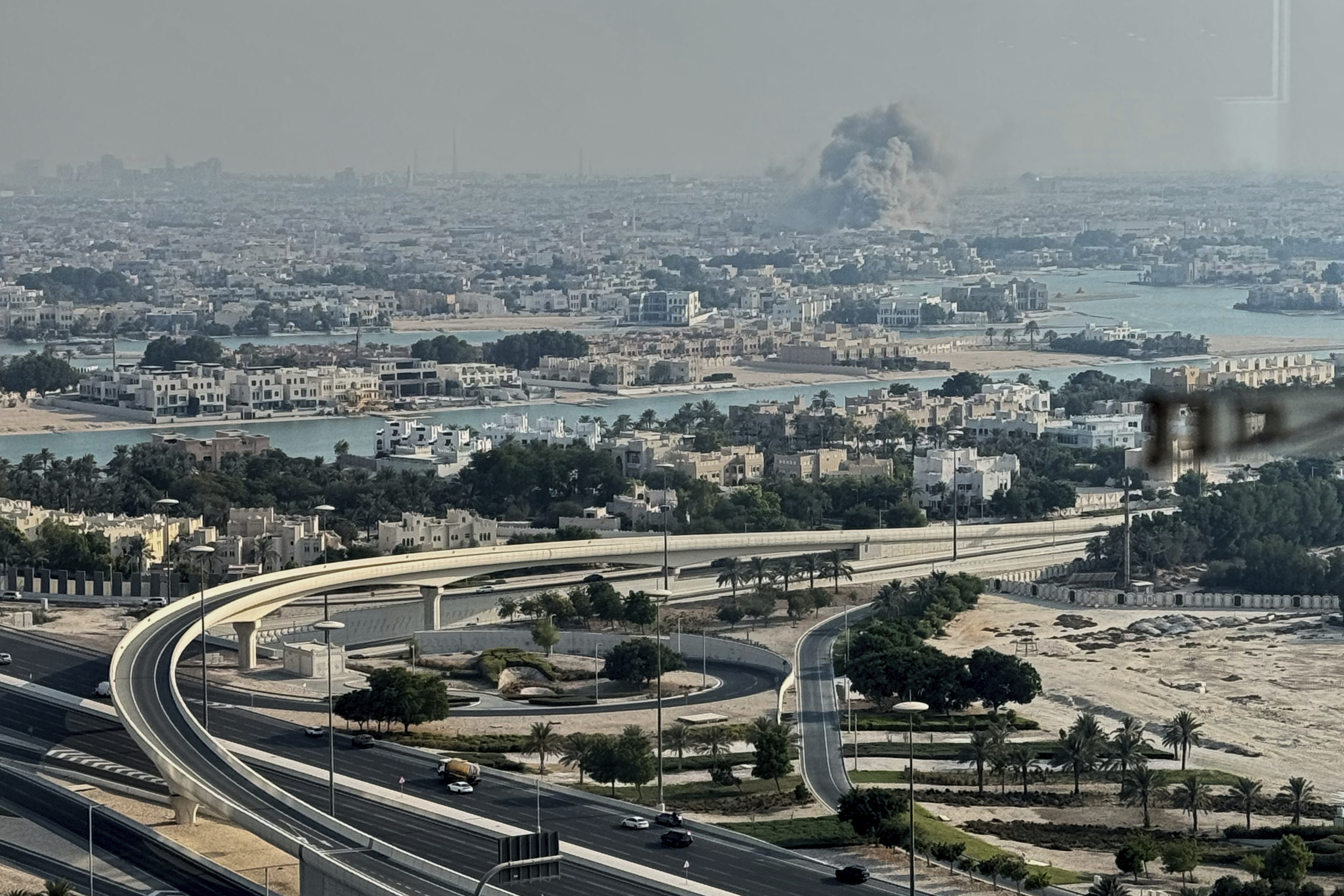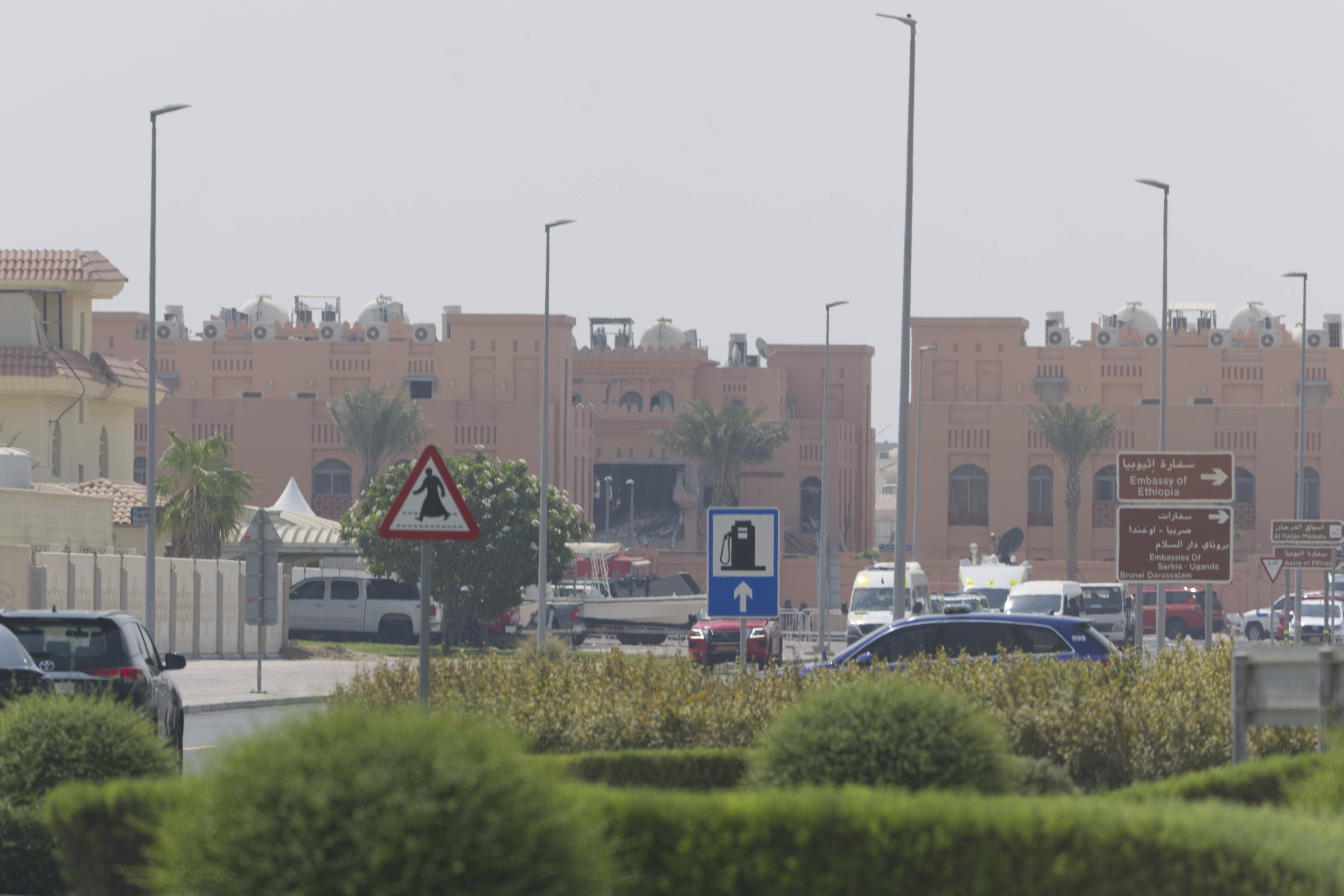
JERUSALEM/GAZA/UNITED NATIONS/TEHRAN/BAGHDAD/MOSCOW - Israeli Prime Minister Benjamin Netanyahu vowed Thursday that "there will never be a Palestinian state" as he signed an agreement to fast-track construction in the contentious E1 area of the occupied West Bank, a project the international community has long warned could shatter prospects for Palestinian statehood.
The land, a corridor east of Jerusalem between the city and the settlement of Ma'ale Adumim, is seen as especially sensitive because construction there would sever East Jerusalem from the northern West Bank, undermining territorial contiguity for a future Palestinian state.
First proposed in the 1990s, the E1 plan has long been frozen due to opposition inside Israel and abroad. Netanyahu pushed it forward in 2012 and revived it again ahead of the 2020 election.
The agreement was signed on Thursday during Netanyahu's visit to Ma'ale Adumim, the largest Israeli settlement in the West Bank. "There will never be a Palestinian state! This place is ours," he said at the ceremony.
The agreement, signed between Netanyahu's government and the Ma'ale Adumim municipality, is intended to accelerate development of new housing projects in the settlement and the adjacent E1 area.
It includes a government commitment of about 3 billion shekels (roughly $900 million) for infrastructure to support some 7,600 housing units, about 3,400 of them in E1, according to the Construction and Housing Ministry.
When construction permits for the project were approved in August, far-right Finance Minister Bezalel Smotrich said the plan was intended to block the creation of a Palestinian state. "Approval of construction plans in E1 buries the idea of a Palestinian state," he said.
The move is expected to further inflame tensions in the West Bank, where violence has surged since the Gaza war began in October 2023. Israeli strikes and gunfire have killed more than 64,000 people in Gaza, according to local health authorities, while much of the enclave has been reduced to rubble and famine has set in.
More than 720,000 Israeli settlers now live in the West Bank and East Jerusalem, captured by Israel in the 1967 Middle East war, alongside about 3.3 million Palestinians. The settlements are considered illegal under international law, including a July 2024 ruling by the International Court of Justice that declared Israel's occupation unlawful. They are widely viewed by Palestinians and much of the international community as a major obstacle to peace.

Ceasefire talks
Hamas will not change its positions and demands for the Gaza ceasefire talks after Israel targeted its negotiation team in the Qatari capital Doha, the Palestinian movement said on Thursday.
"We reiterate that this heinous crime will not succeed in changing our firm positions and clear demands to stop the aggression against our people, the complete withdrawal of the occupation army from the Gaza Strip, a genuine exchange of prisoners, relief for our people, and reconstruction," senior Hamas official Fawzi Barhoum said in a statement.
The US administration "is a full partner in this crime, bearing political and moral responsibility by providing cover and continued support for the occupation's aggression and ongoing crimes against our people," the statement added.
UN condemns Israeli strike in Qatar
The UN Security Council (UNSC) on Thursday condemned the Israeli strike targeting top Hamas officials in Doha, Qatar on Sept 9 and regretted the loss of civilian life.
In a press statement issued by UNSC President Sangjin Kim, the members of the council underscored the importance of de-escalation and expressed their solidarity with Qatar.
UNSC's members underlined their support for the sovereignty and territorial integrity of Qatar, and recalled their support for the vital role that the country plays in mediation efforts in the region amid the war in Gaza.
They reiterated the importance of the ongoing diplomatic efforts of Qatar, alongside Egypt and the United States, and called for the parties to seize the opportunity for peace.
The attack on Qatar potentially opens a new and perilous chapter in the Gaza conflict, seriously threatening regional peace and stability, warned UN Under-Secretary-General for Political and Peacebuilding Affairs Rosemary DiCarlo on Thursday.
The sovereignty and territorial integrity of any country, including Qatar, a valued partner in advancing peacemaking and conflict resolution, must be respected, she said.

'US permission'
Iran's military chief said on Thursday that Israel's "aggression" against Qatar would not have occurred without coordination with the United States and its green light, according to the official news agency IRNA.
Chief of Staff of the Iranian Armed Forces Abdolrahim Mousavi made the remarks in a phone call with Qatar's Deputy Prime Minister and Minister of State for Defense Affairs Saoud bin Abdulrahman bin Hassan bin Ali Al-Thani, during which they discussed Israel's Tuesday airstrike in the Qatari capital of Doha that targeted Hamas officials.
Mousavi said that Iran and its armed forces would stand by the Qatari government, people and armed forces "until the end."
Stressing that Iran strongly condemned Israel's attack, Mousavi noted that Iran's armed forces would never hesitate to support their "Qatari brothers," as relations between the two countries and their peoples had always been based on "fraternity."
The Iranian official said that Western support, especially from the United States, for Israel's "occupation," the killing of Palestinians, and "aggressions" against the region's countries was the main reason encouraging Israeli actions.
Unified efforts
Iraqi President Abdul Latif Rashid on Thursday said that Israel's aggression against Qatar is a flagrant violation of international laws and norms and a direct threat to regional security, stressing the need to unite efforts to stop these violations.
Rashid made the remarks during a phone conversation with Qatari Emir Sheikh Tamim bin Hamad Al Thani, during which he strongly condemned the Israeli strike on Qatar, a statement by the Iraqi presidency said.
Rashid affirmed Iraq's rejection of any threat to Qatar's security and sovereignty, affirming Iraq's "solidarity with its Qatari brothers in the face of aggression."
He called on the international community to assume its responsibilities in putting an end to these crimes that undermine prospects for peace and stability.
Rashid also extended his condolences to the families of the victims and wished the injured a speedy recovery, the statement added.
For his part, the Qatari emir expressed appreciation for Iraq's supportive stance, which reflects strong ties between the two countries and their shared commitment to promoting stability in the region.
Further destabilization
Israeli strikes on the Qatari capital Doha are leading to further destabilization in the Middle East region, Russian Foreign Minister Sergei Lavrov said Thursday.
"We regard it as a gross violation of international law, primarily the UN Charter," Lavrov said at a ministerial meeting with the Gulf Cooperation Council in the Russian city of Sochi.
Lavrov said that the strikes had resulted in a sharp escalation of military and political tensions in the Middle East, and that Russia had received news of the action with deep concern.
"Such actions, without a doubt, deserve the most resolute condemnation," said Lavrov.
United stance
Iranian President Masoud Pezeshkian and his Egyptian counterpart, Abdel-Fattah al-Sisi, stressed on Wednesday the necessity of a united and decisive position to counter Israeli "aggression" following Israel's recent airstrike on the Qatari capital of Doha.
In his phone call with Sisi, Pezeshkian condemned Israel's "criminal aggression" against Qatar, saying such actions showed that Israel was committed to no international framework or regulations and would attack any country at will without any consideration.
He stressed that under such circumstances, the adoption of a "united and decisive" position by the Muslim world was an inevitable necessity to prevent the continuation of Israel's "inhumane" actions against Islamic states.
Sisi, for his part, said that recent Israeli actions had further made it necessary to adopt a common and decisive stance in the face of Israel and counter its "expansionist" objectives aimed at dominating the region.
Israel launched an unprecedented airstrike on Doha on Tuesday, targeting a building used by senior Hamas officials in what Israeli authorities described as an attempt to kill leaders of the Palestinian group.
In the phone call, the two sides also discussed an agreement signed between Iran and the International Atomic Energy Agency in Cairo on Tuesday on resuming cooperation suspended since June, as well as the Tehran-Cairo relations, according to a statement published on the website of the Iranian president's office.


